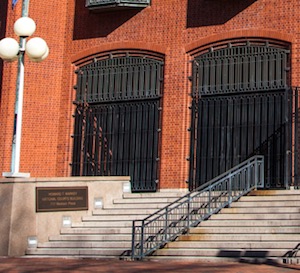 In re HTC Corp., No. 2018-130, 2018 (Fed. Cir. May 9, 2018) (Before Prost, C.J., Wallach, and Taranto, J.) (Opinion for the court, Prost, C.J.)
In re HTC Corp., No. 2018-130, 2018 (Fed. Cir. May 9, 2018) (Before Prost, C.J., Wallach, and Taranto, J.) (Opinion for the court, Prost, C.J.)
HTC Corp., a Taiwanese corporation, and its subsidiary HTC America, Inc., based out of Washington, were sued for patent infringement in the District of Delaware. HTC Corp. and HTC America moved to dismiss for improper venue. The district court found that venue was improper with respect to HTC America, but was proper for HTC Corp. HTC Corp. then petitioned the Federal Circuit for a writ of mandamus directing the district court to vacate its order denying HTC Corp.’s motion to dismiss. The Federal Circuit denied HTC Corp.’s petition for a writ of mandamus seeking dismissal for improper venue.
The Federal Circuit noted that a writ of mandamus is a “drastic remedy” available only when a party has no other adequate means to obtain relief; it is not meant to serve as a substitute for the appeals process. Defendants who want to challenge the denial of an improper venue motion have an adequate remedy on appeal, which makes mandamus review inappropriate. Although HTC Corp. might be forced to litigate the case to final judgment before it could contest venue on appeal, these circumstances were not so drastic or severe as to warrant mandamus review.
Additionally, HTC Corp. asserted that the district court erred by not applying the patent venue statute, 28 U.S.C. § 1400(b), when determining venue. In response, the Federal Circuit restated the “long-established rule that suits against aliens are wholly outside the operation of all federal venue laws, general and special.” Brunette Machine Works, Ltd. v. Kockum Industries, Inc., 406 U.S. 706, 714 (1972). Foreign defendants are subject to suit in any judicial district where they are subject to personal jurisdiction, and the patent venue statute could not overcome this. If the patent venue statute applied to foreign corporations, it could create a “venue gap” for certain foreign defendants wherein the federal courts would have jurisdiction over the case, but no proper venue to exercise it.
Ultimately, HTC Corp. failed to satisfy the high standard required to issue a writ of mandamus, and the Federal Circuit denied its petition.
Take Away
The patent venue statute does not apply to foreign corporations sued for patent infringement. These foreign defendants may be sued in any judicial district where they are subject to personal jurisdiction.
[Troutman-Ad]
[Troutman-About]

![[IPWatchdog Logo]](https://ipwatchdog.com/wp-content/themes/IPWatchdog%20-%202023/assets/images/temp/logo-small@2x.png)


![[Advertisement]](https://ipwatchdog.com/wp-content/uploads/2024/04/UnitedLex-May-2-2024-sidebar-700x500-1.jpg)
![[Advertisement]](https://ipwatchdog.com/wp-content/uploads/2024/05/Quartz-IP-May-9-2024-sidebar-700x500-1.jpg)
![[Advertisement]](https://ipwatchdog.com/wp-content/uploads/2024/04/Patent-Litigation-Masters-2024-sidebar-700x500-1.jpg)

![[Advertisement]](https://ipwatchdog.com/wp-content/uploads/2021/12/WEBINAR-336-x-280-px.png)
![[Advertisement]](https://ipwatchdog.com/wp-content/uploads/2021/12/2021-Patent-Practice-on-Demand-recorded-Feb-2021-336-x-280.jpg)
![[Advertisement]](https://ipwatchdog.com/wp-content/uploads/2021/12/Ad-4-The-Invent-Patent-System™.png)







Join the Discussion
One comment so far.
Jeff Lindsay
May 20, 2018 09:23 pmThat sounds positive for domestic patent holders. But then there is the reality: suing a Chinese company may take two years just to serve process. See http://www.iam-media.com/blog/Detail.aspx?g=f7b266eb-085c-475b-b3b3-9b35c931d6a6.